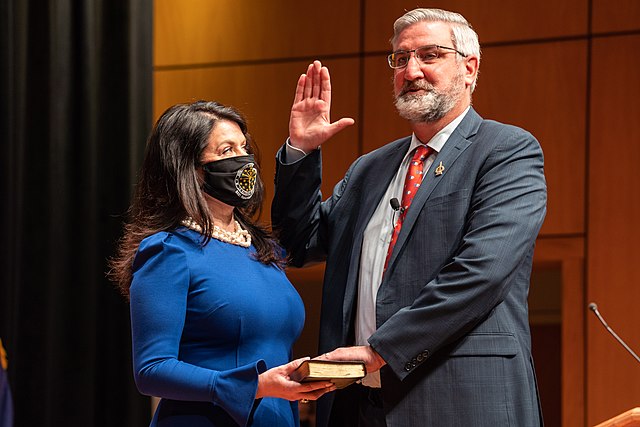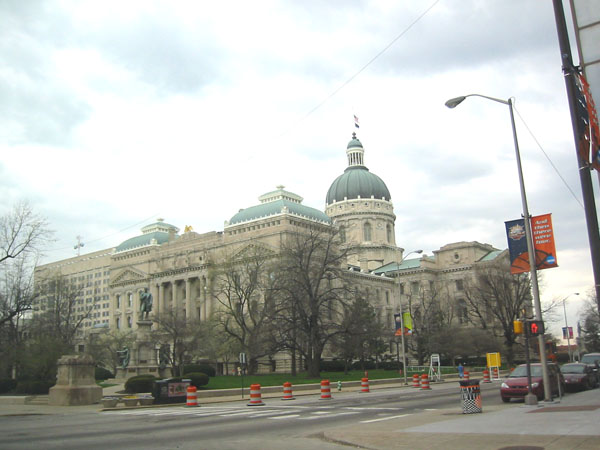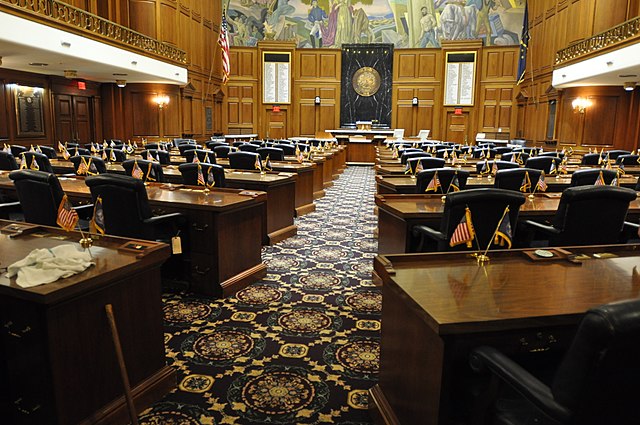Earlier this month, Indiana lawmakers passed, and Governor Eric Holcomb signed into law, a bill aimed at adding more government red tape to the bail process in Indiana.
How does the bail process usually work?
By now, you probably have a decent understanding of how bail works. When police arrest someone, they take them to jail. Once the government charges them with a crime, almost all of them — somewhere around 95% — can leave jail as long as they can “post bail.”
Most of the time, that means giving the court money in exchange for their release. As long as they show up to court and follow other rules, they get their money back at the end of the case. But, if they don’t, the government gets to keep it.
There are a lot of different things that go into how a judge decides how much bail (i.e., money) is the right amount. But, no matter the amount, one thing is obvious: It’s easier for rich people to get out of jail than it is for poor people.

Releasing rich people but locking up poor people doesn’t make any sense. So, organizations have started helping poor people post bail. After all, these people would be released if they weren’t poor. And, at least in theory, it’s not against the law to be poor in the U.S.
How does the new bail law in Indiana work?
Lawmakers in Indiana saw this as a problem and want more government regulation to stop it. Under House Bill 1300, a law passed earlier this month, organizations have to register and pay fees if they want to continue helping poor people accused of crimes in the state.
According to the law, if a “charitable bail organization” helps “more than three individuals in any 180 day period” who are not “a relative,” they will now be regulated by bureaucrats. In addition to regulating these organizations, the law also prevents them from helping people who the government accuses of a violent crime (or even a non-violent felony if they have a violent-crime conviction on their record).

Indiana Governor Eric Holcomb signed House 1300 into law last week. According to some, the law aims to make you safer on the “streets” in the state’s cities like Indianapolis. According to others, it’s a “direct attack” on Indiana’s poorest people.
After all, locking up more poor people doesn’t have necessarily make us safer. According to some studies, poor people are more likely to commit “street” crime than rich people. But rich people are more likely to commit “white collar” crime. If anything, bail laws like the one in Indiana are yet another way the U.S. keeps letting white-collar criminals get away with crime.
The Takeaway:
It’s impossible to predict whether the new bail law in Indiana will help with safety. But it is likely to keep more poor people behind bars — even before they’ve been convicted of a crime. In the meantime, if you’re rich, the new law doesn’t really impact you. In 95% of cases, rich people can still buy their way out of jail no matter how dangerous they are.






